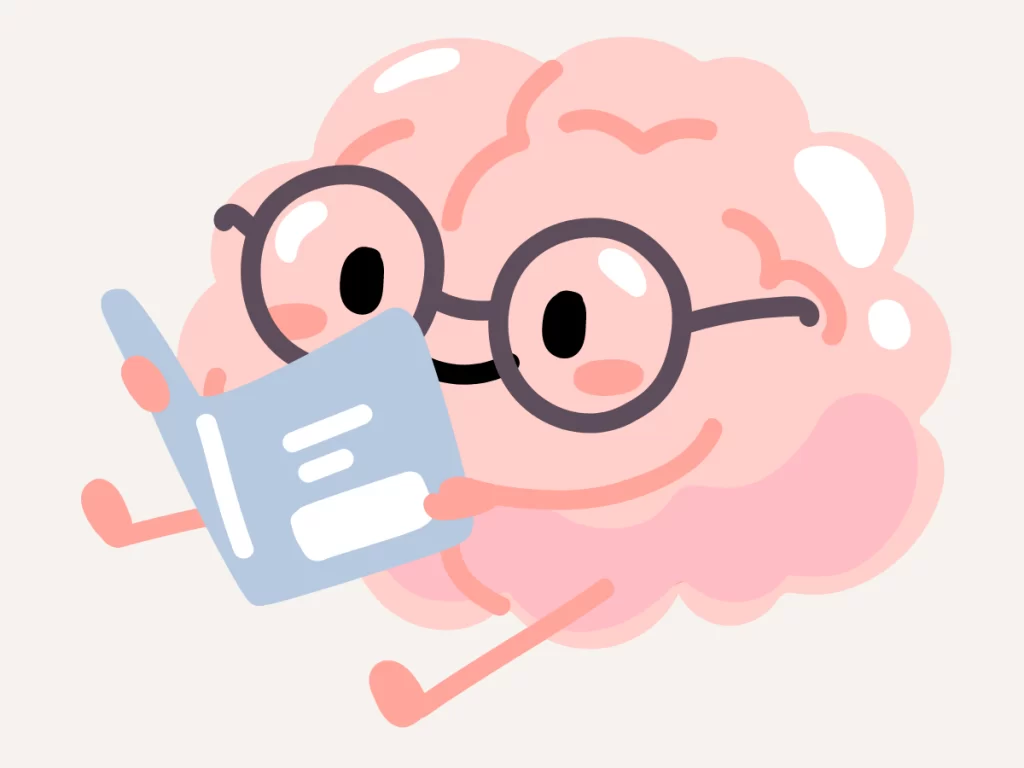DIY Autism In Women Checklist You Will Love
In this post you will read about DIY Autism In Women Checklist You Will Love
If you are reading this post then more thank likely you are where I was a few years ago before I got my diagnosis.
Like many women I went through life thinking something may be a bit off but simply kept on “pushing through” until that was no longer an option.
I became a mother and everything changed.
I was once able to fully functional and multitask and then all of a sudden I wan’t able to remember what I had for breakfast!
Something was wrong and I simply did not know what it was.
And then my son got diagnosed with Autism.
And as I tried to better understand him I was able to find my own symptoms and diagnosis.
This post is for women like me who are looking to see if they “fit” and looking for an answer.
Let’s dive in!
This post may contain affiliate links which means I may receive a commission for purchases made through links (at no extra cost for you). As an Amazon Associate I earn from qualifying purchases. Learn more on my Private Policy & Disclaimer page.
1. The Hidden Social Signs of Autism in Women
You’re Social—but It’s Exhausting
I remember I would spend entire weekends in bed just resting, watching movies and reading books.
I though I was simply being an introvert… that that is what we do.
Turns out I was recharging my social batter for the week to come.
Many autistic and neurodivergent women ARE social, but many times it’s because it is what is socially expected of us.
A show… what people in the field call “a mask” and a part of masking.
“Young females typically are more motivated than males to fit in and be social. Females with autism learn or mimic socially acceptable behavior by watching television shows, movies and the people around them. They may copy the facial expressions of others to hide social communication challenges. Those efforts can cause mental exhaustion, stress and anxiety.” (UCLA Health)
Watchign shows to better understand human dynamics is something I did ALL the time!
I even chose to become a psychologist thinking it was because I wanted to understand the human mind… now I know better 🙂
Common social traits:
- You rehearse conversations before you have them.
- You feel like you’re performing a role instead of just being.
- You “people-watch” not for fun, but to learn how to behave.
Book Suggestion: Camouflage: The Hidden Lives of Autistic Women by Dr. Sarah Bargiela
This is a beautifully illustrated and accessible graphic novel that explores how autistic women often mask or “camouflage” their traits to fit into a neurotypical world.
The author, Dr. Sarah Bargiela, is drawing from both research and real-life stories.
This book sheds light on the emotional and mental toll of masking, the challenges of late diagnosis, and the unique strengths autistic women possess.
It’s an empowering read for late-diagnosed women, allies, and anyone wanting to understand the invisible experiences of autistic women.
Research Study
If you are interested in reading research, this is a good starting point.
The Female Autism Phenotype and Camouflaging: a Narrative Review – Hull, L., Petrides, K.V. & Mandy, W. (2020).
2. Sensory Sensitivities That Are More Than Quirks
Before my diagnosis, I didn’t really understand why I needed to wear sunglasses ALL the time. Even when it’s cloudy and I would simply say “it’s just too bright”. And it was…. for me.
Turns out, what I was experiencing is normal.
If certain sounds, textures, or lights feel physically painful or deeply unsettling, you’re not being dramatic—you may have sensory processing sensitivity.
“Sensory processing sensitivity (SPS) is defined as a personal disposition to being sensitive to subtle stimuli and being easily over-aroused by external stimuli” (Read More)
Signs of sensory sensitivity:
- You avoid certain fabrics, perfumes, or food textures.
- You get overwhelmed in busy or noisy environments.
- You’ve been told you’re “too sensitive.”
SPS has been associated with higher levels of:
- Stress
- Anxiety and depression
- Low self-esteem
- Agoraphobia
- Negative affectivity
- Heightened shyness
- And attention-deficit hyperactivity disorder (ADHD)
Book Suggestion: “Too Loud, Too Bright, Too Fast, Too Tight” by Sharon Heller
This is a guide for anyone who experiences sensory defensiveness. When everyday sensations like noise, light, textures, or movement feel overwhelming or even painful.
Dr. Sharon Heller combines personal experience with scientific research to explain how sensory processing issues can impact daily life, relationships, and mental health.
With practical strategies and validation, this book is a must-read for women trying to navigate an overstimulating world.
Research Study
Sensory over-responsivity in adults with autism spectrum conditions. 2014 – Tavassoli. T, Et. al. (Read More)
“Adults with autism spectrum conditions reported more sensory over-responsivity than control participants across various sensory domains (visual, auditory, tactile, olfactory, gustatory and proprioceptive).”
3. Executive Dysfunction Is Not Laziness
It can be summarized with the sentence: Living in a Cycle of Overwhelm and Hyperfocus
Laundry piles up. Deadlines sneak up. Then suddenly you’re hyperfocused and forget to eat.
Does this happen to you? Because it SURE happens to me!
Many of us struggle with executive function.
“Executive function refers to skills that you use to manage everyday tasks like making plans, solving problems and adapting to new situations.” (Read More)
Signs of executive dysfunction:
- You procrastinate even on tasks you want to do.
- You either hyperfocus or can’t focus at all.
- You need structure but struggle to create it.
This can have a big impact in your life, from not being able to hold a job, having trouble maintaining friendships and/or romantic relationships, and the impact it can have on your physical and mental health.
Book Suggestion: “A Radical Guide for Women with ADHD” by Sari Solden & Michelle Frank
This is a supportive and empowering book written specifically for women who are navigating life with ADHD.
It offers a combination of expert insight and relatable advice, encouraging readers to stop hiding, let go of shame, and embrace their brains as they are.
The tone is validating, gentle, and affirming—especially for women who’ve felt misunderstood or overlooked in traditional ADHD spaces.
This book helps you build self-compassion, recognize harmful internalized messages, and create a life that honors your unique rhythm.
4. Emotional Depth That’s Often Misread
When you are no stranger to people calling you “Too Emotional”.
I used to wonder why I felt things so intensely.
I’d cry at commercials (especially if there are animals) and feel upset over injustices that would happen to people half way across the world.
Turns out, autistic women can experience hyper-empathy, but mask it until we burn out.
One study: “Comments from participants included: “I absorb other people’s emotions, and I almost know how people are feeling before they are aware of it themselves.” and “I feel empathy so much that it’s painful.” ” (Read More)
Traits to look for:
- You hide meltdowns until you’re alone.
- You’ve been diagnosed with anxiety, depression, or both.
- You overthink social interactions for days.
Book Suggestion: “I Think I Might Be Autistic” by Cynthia Kim
A highly recommended book for women who suspect they might be on the autism spectrum—especially those who were missed or misdiagnosed earlier in life.
Author Cynthia Kim is an autistic woman who was diagnosed as an adult.
This book is a gentle, insightful place to start. It’s like having a thoughtful, neurodivergent friend walk you through the discovery process without judgment.
5. Strengths To Keep In Mind
Depending on how you view things, different elements can be viewed as strengths or weaknesses.
I personally look at it from the point of view of: is it helping you or making your life more difficult.
And it can change, maybe one day your ability to hyperfocus on something is an asset and at other times it prevents you from remembering to eat, drink, appointments.
It’s all about learning to find a balance (in my opinion).
Strengths many autistic women share:
- Fierce loyalty and compassion
- Strong sense of justice
- Deep creative or analytical talents
- Hyperfocus
Book Suggestion: “The Secret Life of a Female Asperger” by Samantha Craft
If you enjoy reading memoirs, then this is a great choice.
Author Samantha Craft shares her personal journey, highlighting both the challenges and triumphs of living with Asperger’s Syndrome.
Bonus: Autism Test for Adults: Signs of ASD
Here is a quick quiz you can take but again, its meant for PERSONAL use and it NOT a diagnostic tool.
Having said that, and due to the fact that you are reading this post, I’m sure you’ll want to try it out. 🙂
What’s Next?
If you see yourself in my list you may want to speak to your doctor about getting an evaluation.
Of course this is not as easy as one thinks.
There may be wait lists, cost expense, and many more reasons why getting an official diagnosis may bet work out.
But know that self diagnosis does exist and you don’t need a diagnosis in order to start implementing accommodations to your every day life.
Thats how I started and it has improved my life significantly.
Giving myself grace and better understanding has been crucial to improving my quality of life.
Things To Do
- Seek a neurodiversity-affirming therapist or psychologist.
- Join online communities of late-diagnosed autistic women.
- Keep learning—especially from those who live it.
- Start making space for your accommodations.
- This could be as simple as carrying noise cancelling headphones or earplugs when you know you will be in an overstimulating place.
FAQ: Autism in Women
Q: Can I be autistic and still be social or empathetic?
A: Yes! Many of us CAN be social but it’s also goes hand in hand with masking and burnout.
Q: Why wasn’t I diagnosed as a child?
A: Most early autism research was based on boys. Girls often fly under the radar by masking or internalizing symptoms.
In this post you read about DIY Autism In Women Checklist You Will Love
To Summarize
Being autistic doesn’t mean you’re broken—it means your brain is wired differently.
Once you understand it, you can stop trying to “fix” yourself and start living more freely. And start giving yourself grace.
This was key for me when I first self diagnosed.
To know I didn’t need to “try harder” or “push through”, I just worked different and needed to simply adjust to MY needs.
I hope you found this post useful!









